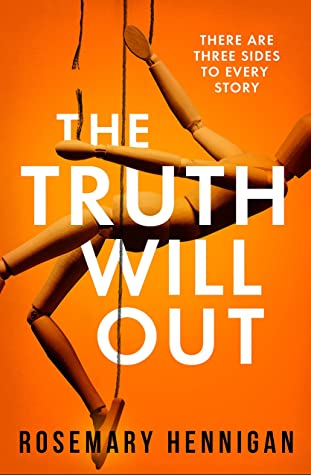
Rosemary Hennigan has burst onto the Irish literary scene with her debut novel, The Truth Will Out. Set in Dublin, the narrative follows Dara, an aspiring actress trying to catch her big break. Her life is twisted inside out when she is cast in a reboot of a controversial play based on the killing of a young Irish boy, Cillian Butler. The play’s characters are based on ‘real-life’ witnesses in the novel, Eabha and her brother Austin. Almost 20 years later, the production still faces negative public attention.
The main issue, however, is that the play is written and directed by Eabha, a stuck-up socialite who was there the night of the accident along with her brother, Austin. No one knows what happened, only what Eabha believes to have occurred. Ultimately the reader is faced with questions of legitimacy, as they uncover the layers of truth that Eabha and her family have hidden away for 20 years.
In conversation with The University Times, Hennigan discusses the focus of the narrative. The Trinity graduate explains, “I think it’s about loops and the circularity of behaviours when we’re with people who have that really dominant personality and how you can get drawn in by them”. She continues, “what they emit out into the world is often something that traps people”.
Eabha manipulates the audience and cast into what she believes to be the truth. Described by Hennigan as “the least likeable character”, the reader too is plunged into Eabha’s lies and the world Hennigan has created.
Touching on her own experience of writing the novel during the pandemic, Hennigan states that “for the characters, the carpet was pulled out from them so often in the process of preparing for the play. I think it’s that type of feeling a lot of us have at the moment, particularly during the pandemic when everything was very unstable, and all your assumptions about life were whisked away from you”. This feeling of uncertainty pervades the narrative.
The story develops in the third person, but is primarily focused on Dara, who plays the character of Eabha in the novel’s play. “It was in conversation with my editor that she felt it was important for Eabha to be enigmatic”, Hennigan says. “I think it’s interesting because, in a meta way, Eabha consumed Dara’s space.” Instead, by focusing on the young impressionable Irish woman, Hennigan could give a narrative voice to Dara over a more dominating character like Eabha.
Unique to The Truth Will Out are Hennigan’s stylistic choices. The novel exposes the reader to snippets of the play’s script. “I went back and forth a lot with it. I think it’s an interesting way to tell the story”, Hennigan remarks. “It means for the reader you’re almost sucked in again. There’s layer upon layer, but it’s Eabha’s script through Dara’s eyes.” As the reader, you feel as though you are right there in a rehearsal room.
Hennigan touched on why she based the narrative in Dublin rather than generalising the novel’s location. “I did it without really thinking about it”, she says. “I love the Dublin theatre scene. I think it’s one of the things that gives life to the city.” The author’s ability to accurately capture life for aspiring actors in Dublin, characterised largely by the struggle for housing in the midst of a financial crisis, is something the Irish reader can sympathise with.
Hennigan has a law degree and is a qualified solicitor – how did this translate to publishing her debut novel? “I’ve been writing since I was young,” Hennigan says. “I’ve always had two divided interests, one being writing and books.” With the pandemic giving everyone nothing but time, Hennigan felt this was her breakout moment to start. She confessed, “honestly, it’s been my number one ambition for life, and everything else has been the practical side of me”. The Truth Will Out is an awe-inspiring debut, and we look forward to reading more from Hennigan in the future.






